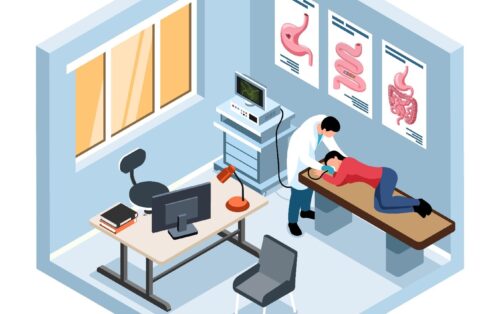About Endoscopy/Colonoscopy
Endoscopy and colonoscopy are medical procedures that play crucial roles in diagnosing and treating various gastrointestinal conditions. Endoscopy is a minimally invasive procedure that involves the use of a flexible tube with a light and camera at its tip, known as an endoscope, to examine the interior of organs such as the esophagus, stomach, and small intestine. This procedure is commonly employed to investigate symptoms like abdominal pain, gastrointestinal bleeding, or to screen for conditions like gastroesophageal reflux disease (GERD) or Barrett’s esophagus. The real-time visualization provided by endoscopy allows healthcare professionals to identify abnormalities, take tissue samples for biopsy, and even perform certain therapeutic interventions.
Colonoscopy, on the other hand, specifically focuses on examining the colon or large intestine. It employs a longer endoscope to explore the entire length of the colon. Colonoscopies are instrumental in detecting and preventing colorectal cancer, as they can identify polyps, abnormal growths that may develop into cancer over time. During the procedure, if polyps are found, they can be removed immediately, reducing the risk of cancer development. Regular colonoscopies are recommended for individuals over a certain age or those with a family history of colorectal cancer, as they contribute significantly to early detection and successful treatment.
Both endoscopy and colonoscopy are valuable tools in the hands of healthcare professionals, providing a non-invasive means of visualizing and addressing gastrointestinal issues. These procedures not only aid in the diagnosis of conditions but also play a crucial role in preventive medicine, helping to identify and treat potential health threats before they escalate into more serious problems.
Please Refer This Page For Endoscopy/Colonoscopy Services & Pricing

Other Departments
Special offer
Get a free whatsapp health consultation
with professional experts
It’s interesting
Recent articles
Heart Attack Vs Cardiac Arrest: What’s The Difference?
When it comes to heart-related medical emergencies, two terms are often used interchangeably, heart attack and cardiac arrest. However, while both con …
Why Choose Primus Diagnostic in Guwahati for Accurate Health Reports?
When it comes to healthcare, accuracy in diagnosis is the foundation of effective treatment. A reliable diagnostic center ensures that every test, sca …
How to Prepare for Common Diagnostic Tests
Diagnostic tests play a vital role in modern healthcare. They help doctors identify medical conditions early, track ongoing health concerns, and provi …





















